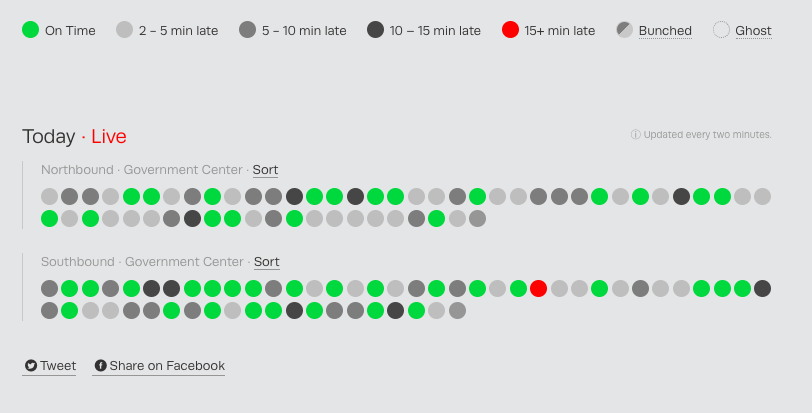When Miami officials said they would restore millions to the Metrorail transit budget toward the end of last year, it was a big win for transit riders.
With more resources to work with, Metrorail could replace aging trains and run service every five minutes all day at most stations. At least, that was how things were supposed to go. So far, the experience for the riders who make 55,000 daily trips on Metrorail hasn't measured up to the promises.
This week, the advocates at Transit Alliance Miami released a tool that lets anyone track Metrorail's performance on any given day. The tool tracks every train arrival at Metrorail's Government Center station, and how that performance compares to scheduled service. The Alliance believes it is the first advocacy group to conduct this style of real-time audit of on-time performance.
And the long and short of it is, Metrorail service still isn't as reliable as it should be.
On an average weekday, the group found, Metrorail is supposed to run 110 trains in each direction during peak periods with five-minute headways, but of those, 70 in each direction are at least 2 minutes later than scheduled. The analysis also revealed that some of the agency's scheduled trains never run at all -- "ghost trains," the Alliance calls them.
Yesterday, for example, 43 northbound peak period trains ran on time, while 20 were 5-10 minutes late, six were 10-15 minutes late, and four were more than 15 minutes late. There were 12 ghost trains, and another seven were bunched closely behind other trains, arriving early.
"Decades of poor maintenance, budget cuts and political inaction have resulted in an unreliable and barely usable system," the Alliance says.
"When transit services fail to provide reliable connections, residents are left with no choice but to turn to their cars or costly rideshare services," the Alliance's Marta Viciedo said in a statement.






